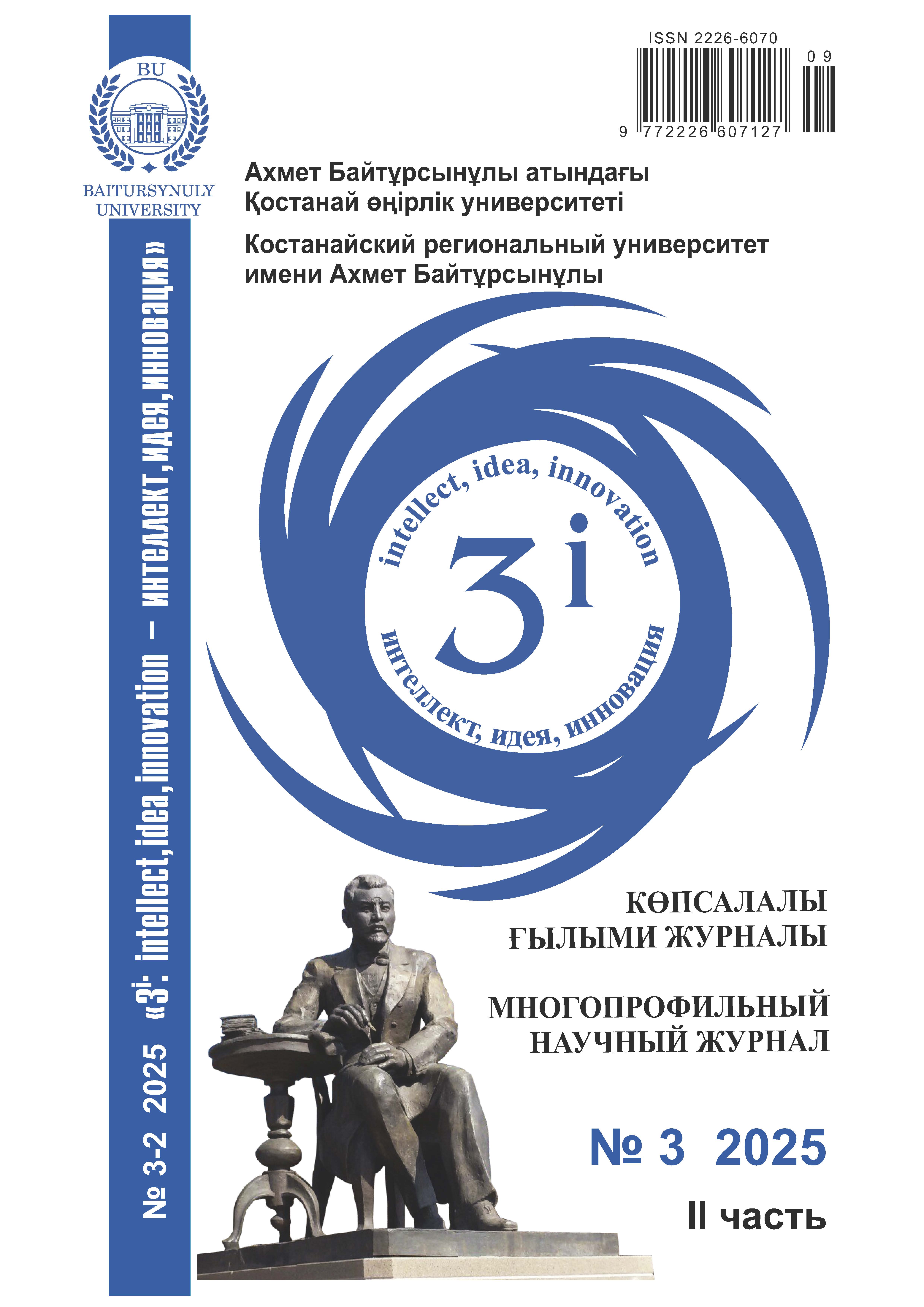ПЕДАГОГИКАЛЫҚ БІЛІМ БЕРУДЕГІ ДӘСТҮРЛІ ЖӘНЕ АРАЛАС ОҚЫТУ ӘДІСТЕРІНІҢ САЛЫСТЫРМАЛЫ ТАЛДАУЫ
DOI:
https://doi.org/10.52269/KGTD253264Кілт сөздер:
педагогика, білім беру, аралас оқыту әдісі, дәстүрлі оқыту әдісі, салыстырмалы талдау, болашақ мұғалімдер, ғылыми басылымдарАңдатпа
Қазіргі білім беру жүйесінде оқыту әдістерін жетілдіру мен жаңарту маңызды мәселелердің бірі болып табылады. Осы тұрғыда дәстүрлі және аралас оқыту әдістерінің тиімділігі мен ерекшеліктерін зерттеу өзекті мәселеге айналуда. Білім беру үдерісін цифрлық трансформациялау аясында аралас оқыту әдістерін енгізу оқытудың икемділігі мен тиімділігін арттырудың бірден-бір жолы ретінде қарастырылады. Зерттеудің негізгі мақсаты – дәстүрлі және аралас оқыту әдістерінің білім алушылардың академиялық жетістіктеріне, мотивациясына және өз бетімен білім алу дағдыларына әсерін талдау. Бұл мақсатқа жету үшін оқыту әдістерінің артықшылықтары мен кемшіліктерін жүйелі түрде салыстырып, олардың білім беру процесіндегі рөлін анықтау көзделді. Зерттеу барысында 2019–2024 жылдар аралығындағы ғылыми жарияланымдарға талдау жасалып, сапалық және сандық контент-талдау, жүйелі және контексттік талдау, аналитикалық топтау әдістері қолданылды. Сонымен қатар, жоғары оқу орындарының студенттері арасында сауалнама жүргізіліп, алынған деректер негізінде оқыту әдістерінің тиімділігі бағаланды. Алынған нәтижелер аралас оқыту әдістерінің білім беру процесін икемді әрі жекелендірілген етіп ұйымдастыруға мүмкіндік беретінін көрсетті. Бұл әдіс оқытудың интерактивтілігін арттырып, студенттердің өз бетінше білім алу дағдыларын дамытатыны анықталды. Зерттеу жұмысының практикалық маңыздылығы – алынған нәтижелерді педагогикалық практикада пайдалану арқылы білім беру сапасын жақсарту мүмкіндігі.




